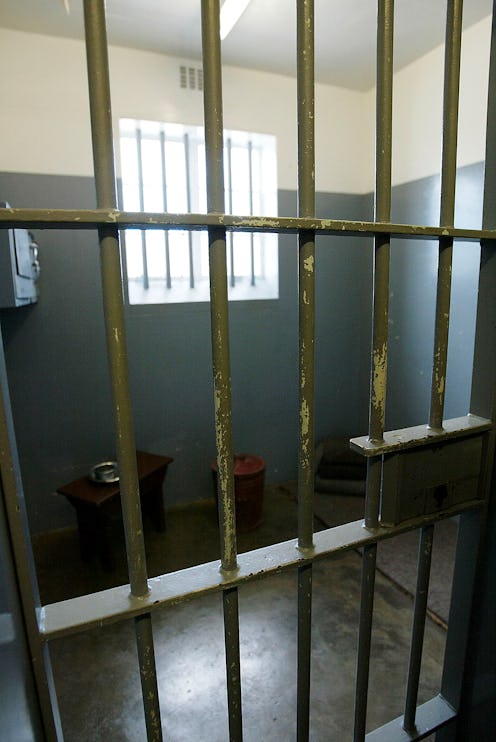News
Why Brock Turner Is Getting An Early Release
Just three months ago, the mainstream media and social media alike were set ablaze by a galvanizing story, one that drew the attention of no less than the vice president of the United States himself. Former Stanford student Brock Turner was convicted of three counts of sexual assault, but received a scant six-month jail sentence from Santa Clara judge Aaron Persky. The leniency on Persky's part sparked a tremendous amount of outrage, and now even more questions are flying. Namely, why is Turner being released early?
On Friday, Sept. 2, Turner will be released from jail, having served just three months of his six-month sentence. And while that may seem startling, it's actually more or less par for the course. Because Turner displayed "good behavior" as an inmate, he's being let out early.
Needless to say, that isn't going to sit well with a whole lot of people, given the already incredibly lenient sentence he received. Turner was convicted of digitally penetrating an unconscious woman behind a dumpster, but Judge Persky ultimately opted to give him a light sentence, saying that he held "less moral culpability" for what happened because he was drunk, cautioning that "a prison sentence would have a severe impact on him," and citing his lack of prior criminal history.
The fallout from Persky's sentencing of Turner was severe. State prosecutors had argued for Turner to spend six years in prison, but he ultimately got just a fraction of that time, and will only serve 1/20th of it (three months) when he's released Friday.
Consequently, multiple jurors have since refused to sit on cases Persky is presiding over, reportedly out of disgust with his role in the Turner sentencing, or the fear that he'd similarly override their verdicts with more slap-on-the-wrist sentencing. On Monday, it was reported that Persky will no longer preside over criminal cases, per his own request.
In any case, Turner will soon be free from imprisonment after a 90-day stint in the Santa Clara Country Jail. That won't mean he's free and clear from any further punishment, however. He'll still have to register as a sex offender — which, in light of his brief time in jail, will almost certainly be the biggest punishment he faces from his sexual assault conviction. Registration as a sex offender is a lifetime deal. Here's what it entails in practical terms, according to the California Department of Justice:
Registered sex offenders are required to update their information annually, within five working days of their birthday. Some sex offenders must update more often: transients must update every 30 days, and sexually violent predators, every 90 days. The Sex Offender Tracking Program keeps track of the next required update, and if a registered sex offender is in violation of the update requirements, the Internet web site will show the registrant as being in violation.
In simple terms, regardless of how quickly Turner got out, he's never going to entirely escape the reality of what he did. There's no denying that his short sentence had an impact on the political process, too. On Monday, California lawmakers passed a bill establishing mandatory minimum sentences for people convicted of sex crimes.
